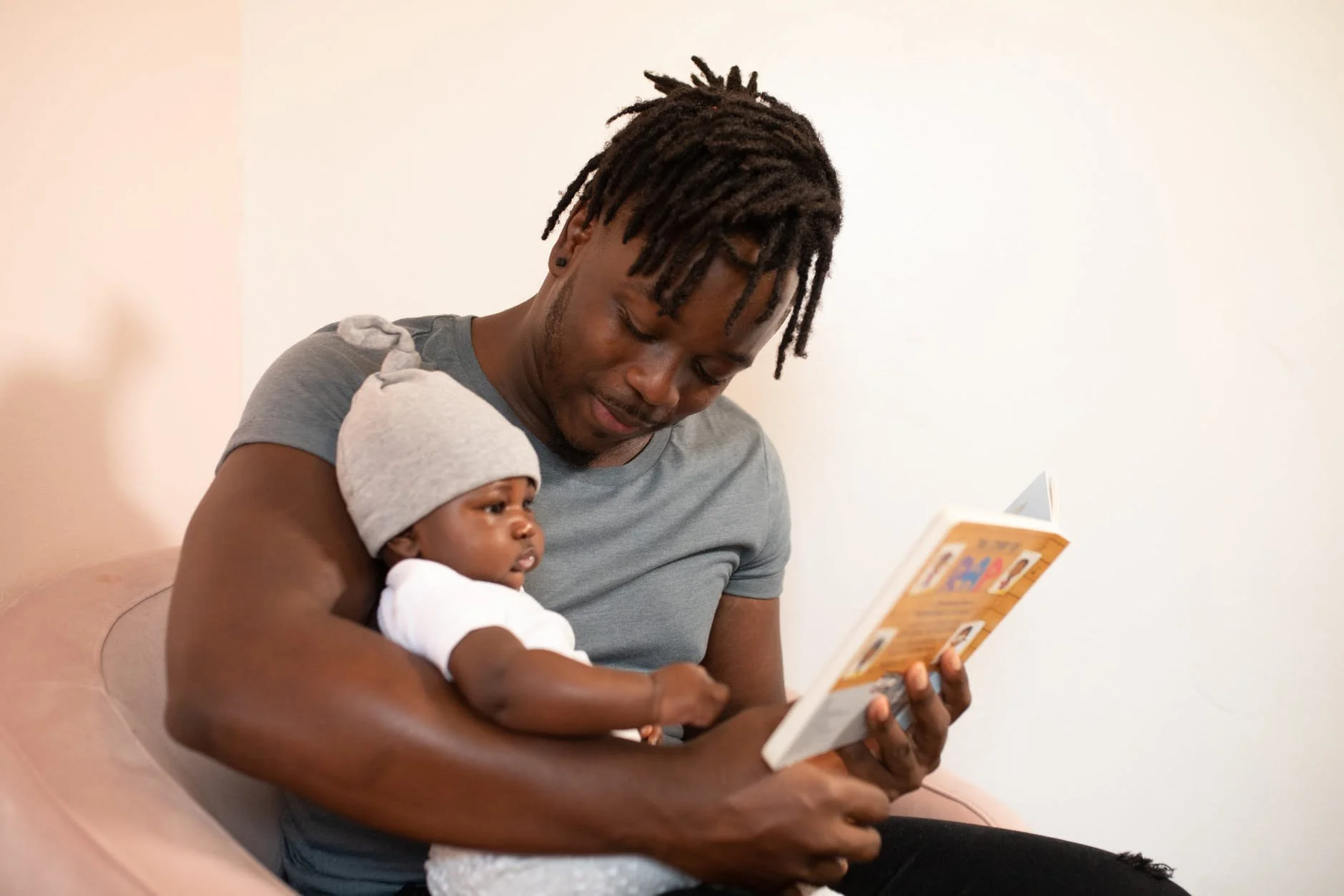5 Ways a New Dad Changes After Baby's Birth
And baby makes three. The birth of a new baby brings changes to a couple, both the new mom and the new dad. While both science and society are still exploring what it means to be a new parent in 2021, there are many things we know but are not discussed. At Postpartum Together we spend a lot of time exploring the changes in a new mom, including Matrescence. However, science shows that the partner, in most studies, a man, also goes through a number of changes. In this post, we’ll discuss 5 ways a new dad changes after their baby’s birth.
RELATED: Motherhood Identity: The Lost Me
Their Hormones & Neurons Shift During the Postpartum Season
We know that a mom's hormones can go on a roller coaster ride after giving birth. From the plunge that happens after delivering a baby and the placenta to the rushes that accompany breastmilk, mom has many changes at once. But did you know that men who are present with their newborns also experience spikes and dips? Testosterone and cortisol tend to dip, with testosterone dropping to 1/3 in many cases. Meanwhile, oxytocin, estrogen, and prolactin increase. This means that biologically these men are able to lean more into nurturing and less into risk-taking and aggressive reflexes.
A really cool part of all of this is that, along with mom, the new dad can experience brain neurogenesis. This means that, due to a load of new things to learn, the brain creates new neuro-pathways. The amount and frequency can be largely dependent on the amount of time the father is in contact with the newborn. If you have been looking for a reason to actually take that paternal leave, this is it!
They Take on New Responsibilities and Stressors
With the addition of a new baby, often comes the need to provide. Men can internalize any outside pressure to perform on behalf of their growing family. . When he takes on new responsibilities,he may become more stressed. For some men, this stress can be shown in emotional distancing, overworking, lack of communication and other things that can feel to his partner like withdrawal.
A New Dad Can Experience Postpartum Depression, Too
Actually, an estimated 1 in 10 (10%) of men experience postpartum depression. As stated above, the male partner can also experience a number of hormonal fluctuations. According to Innovations in Clinical Neuroscience, "There are numerous potential risk factors that can contribute to the development of PPD in men, including a history of depression, marital discord, poverty, maternal depression, and unintended pregnancy."
A man experiencing postpartum depression may be less likely to vocalize the need for help and to accept help. Just as it is important to know the signs of Postpartum Depression in New Moms, it is important to know the signs in new dads such as:
Onset of violence
Isolation from mom, new baby, or other friends and family
Increased anger and conflict
Increased use of alcohol or prescription/street drugs
Frustration or irritability
Significant weight changes
Being easily stressed
Personality change leaning towards hopelessnss, discouragement, impulsiveness, lack of motivation
Fatigue (I know, this one is so hard because aren't we all exhausted?!)
Overwhelming sadness, crying, despair
Thoughts of suicide or death
If someone you love is experiencing these symptoms of PPD, please contact Postpartum Support International. They even have a new dads support call!
They Also Experience Identity Shifts
When someone becomes a parent, the way they see themselves in the world can shift in many ways. We see this in new moms and it is true that new dads experience this also. For some men, it is the way he sees himself socially and in the context of a group of men. For others, it is his understanding of his place as a provider and can lead to increased anxiety around finances. For most men, there is an identity shift in relation to his place as a lover and partner.
A new dad may find himself more interested in social justice and impacting the world his children grow up in. Parenting may cause him to evaluate his ideas of spirituality and purpose. It can create a desire to reparent oneself by addressing and working through parts of his childhood and upbringing, including his fatherly leadership.
It is important that we normalize the shifts in identity that all parents experience. This is a natural normal process and if we give it space to explore and process, we get to grow through that.
New Dads Feel Like the Third Wheel
Often I hear from new dads that they feel like the third wheel in their family. The way your relationship once existed isn't the same anymore. Chances are, you are having less sex and have less date nights. With a baby or child that is 100% dependent on you as the parents, there is little time for giving attention and feeling seen like you used to. Men with a love language of physical touch can struggle with lack of interaction.
As you find your way together, it is important to discuss the impact of the changes and find ways to stay connected. Afterall, it was the two of you who created this new addition!
Learning And Growing Together As New Parents
Through the many changes of adding a new baby to your family, remember to take time to learn and grow together. While it is true that your baby needs you for pretty much everything, the foundation you build in your relationship is a gift to you, your partner, and your child(ren). Do not put your relationship on the back burner.
Need some help making connections and finding the fire again? Take our FREE 7 Day Spark Challenge and get 7 days of small intimate moments you can share.


